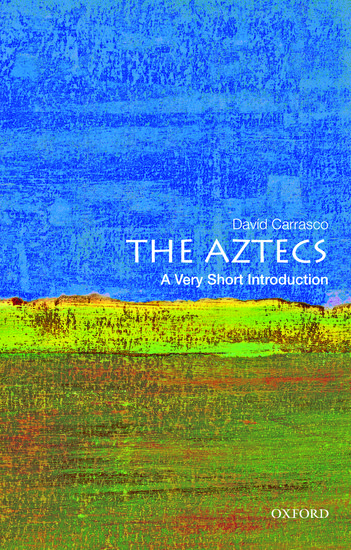Home >
A Very Short Introduction >
Sleep (History)
A Very Short Introduction | History
Sleep
ISBN: 9780195379389
Series: A Very Short Introduction
Sleep (History)
A Very Short Introduction Sleep (History) Media > Books > Non-Fiction > Education Books Expect Delays of Up to 4 Weeks| Order Below |
ISBN
9780195379389 (10-digit ISBN: 0195379381)
- Description
- Key Features
- Series Description
- Table of Contents
- Answers all of the pertinent questions - what is sleep? why do we need sleep? how much sleep is enough? what happens when we don't get enough sleep?
- Explores sleep changes in relation to pregnancy, newborns, children, adolescents, middle age and menopause, old age, and dementia
- Considers the impact of out modern 24/7 society on our sleep and its patterns
- Looks at some of the major sleep disorders
Why do we need sleep? How much sleep is enough? What is sleep? What happens when we don't get enough?
We spend about a third of our lives asleep - it plays a crucial role in our health and wellbeing. References to sleep abound in literature and art, and sleep has been recognized as fundamental to the human condition for thousands of years. Over the past century, our knowledge of how sleep occurs, what it does, and what happens to our health if we do not have enough has developed hugely. The impact of poor sleep on our quality of life is also gaining recognition and the prevalence of sleep disorders in the population appears to be increasing as we live ever stressful lives.
This Very Short Introduction addresses the biological and psychological aspects of sleep, providing a basic understanding of what sleep is and how it is measured, looking at sleep through the human lifespan and the causes and consequences of major sleep disorders. Russell G. Foster and Steven W. Lockley go on to consider the impact of modern society, examining the relationship between sleep and work hours, and the impact of our 24/7 society.
Oxford's Very Short Introductions series offers concise and original introductions to a wide range of subjects--from Islam to Sociology, Politics to Classics, Literary Theory to History, and Archaeology to the Bible.
Not simply a textbook of definitions, each volume in this series provides trenchant and provocative--yet always balanced and complete--discussions of the central issues in a given discipline or field. Every Very Short Introduction gives a readable evolution of the subject in question, demonstrating how the subject has developed and how it has influenced society. Eventually, the series will encompass every major academic discipline, offering all students an accessible and abundant reference library.
Whatever the area of study that one deems important or appealing, whatever the topic that fascinates the general reader, the Very Short Introductions series has a handy and affordable guide that will likely prove indispensable.
Please note: As this series is not ELT material, these titles are not subject to discount.
1: The history of sleep
2: The generation and regeneration of sleep
3: The sleeping brain
4: The reasons for sleep
5: The seven ages of sleep
6: When sleep suffers
7: Sleep and health
8: Society and sleep
9: The 24/7 society
References
Further reading
Why do we need sleep? How much sleep is enough? What is sleep? What happens when we don't get enough?
We spend about a third of our lives asleep - it plays a crucial role in our health and wellbeing. References to sleep abound in literature and art, and sleep has been recognized as fundamental to the human condition for thousands of years. Over the past century, our knowledge of how sleep occurs, what it does, and what happens to our health if we do not have enough has developed hugely. The impact of poor sleep on our quality of life is also gaining recognition and the prevalence of sleep disorders in the population appears to be increasing as we live ever stressful lives.
This Very Short Introduction addresses the biological and psychological aspects of sleep, providing a basic understanding of what sleep is and how it is measured, looking at sleep through the human lifespan and the causes and consequences of major sleep disorders. Russell G. Foster and Steven W. Lockley go on to consider the impact of modern society, examining the relationship between sleep and work hours, and the impact of our 24/7 society.
Key Features
- Answers all of the pertinent questions - what is sleep? why do we need sleep? how much sleep is enough? what happens when we don't get enough sleep?
- Explores sleep changes in relation to pregnancy, newborns, children, adolescents, middle age and menopause, old age, and dementia
- Considers the impact of out modern 24/7 society on our sleep and its patterns
- Looks at some of the major sleep disorders
Series Description
Oxford's Very Short Introductions series offers concise and original introductions to a wide range of subjects--from Islam to Sociology, Politics to Classics, Literary Theory to History, and Archaeology to the Bible.
Not simply a textbook of definitions, each volume in this series provides trenchant and provocative--yet always balanced and complete--discussions of the central issues in a given discipline or field. Every Very Short Introduction gives a readable evolution of the subject in question, demonstrating how the subject has developed and how it has influenced society. Eventually, the series will encompass every major academic discipline, offering all students an accessible and abundant reference library.
Whatever the area of study that one deems important or appealing, whatever the topic that fascinates the general reader, the Very Short Introductions series has a handy and affordable guide that will likely prove indispensable.
Please note: As this series is not ELT material, these titles are not subject to discount.
EASY ORDER FORM
PRICES LISTED INCLUDE CONSUMPTION TAX
Price Before Tax:
¥1,790


